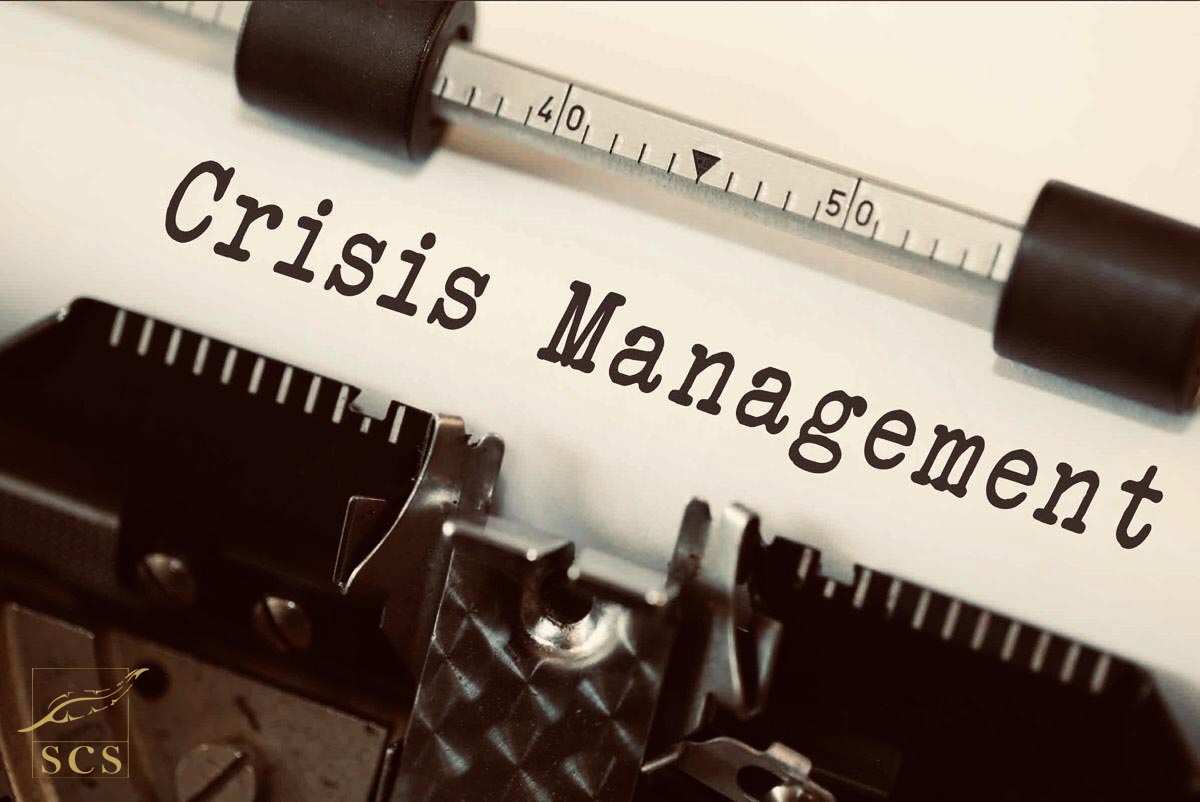A crisis is any situation – large or small, internal or external, that poses a threat to an organization, its executives, reputation, or financial liability. Sometimes these situations become major media events. Other times they may not generate a ripple outside of the company itself – but that does not make them any less of a crisis. Because of this, establishing and following security and crisis management strategies is essential for a company facing a chaotic situation.
Over the last decades, organizations have been facing various kinds of crises – cyberattacks, scandals, executive kidnappings, or governance issues. The pressure on the stakeholders is rising and companies are judged by the way they manage their difficulties and how they respond to new expectations.
Sadly, most companies are not prepared when a crisis strikes. They are not able to manage the situation, they do not have the tools or the procedures required. Consequentially, we often see:
- delayed responses,
- ineffective planning,
- chaotic communication,
- reputational damage, and,
- loss of market shares – or even lives.
It comes as no surprise that in recent years an increasing number of organizations are looking to specialized companies – like SCS, for help with their security and crisis management needs. This is because the consequences of a lack of adequate security and crisis management strategies are extremely costly.
Or in different terms, the inadequate handling of delicate situations has a negative impact on your company’s power, brand and reputation and leads to financial loss.
More private and public sector organizations invest their time and funds into analyzing the risks they face and the crisis process itself. The concept of organizational resilience is gaining popularity and credibility, as well as new tools and methods proposed by security experts – who support, train, and advise these companies.
Resilience and Crisis Management
Regardless of whether it’s an industrial accident, an outrageous press article, money laundering, a data breach or kidnapping, a crisis often begins with an unusual event that throws the company off balance. Sometimes it even puts it into a position where its sustainability or continued operations are brought into doubt.
Traditionally, a crisis is seen as a time of hardship and tribulation.
However, we at SCS offer a somewhat different way of looking at things. We see it as a certain opportunity.
A crisis is an opportunity to manage an event that occurred in the most efficient manner possible and become proactive security and crisis management stakeholders.
Actually, a crisis is an integral part of building the resilience of your organization. Because we emerge from traumas with even greater strength, this resilience can help identify what it takes to re-establish an equilibrium in a corporation following a crisis. This equilibrium can be the original state that the crisis disrupted, or it can be a new equilibrium, what matters is that it allows the company to function after an event.
This requires appropriate tools for responding to emergencies and coordinating the decisions and actions of the various people involved. To name a few, these include:
- emergency plans,
- crisis units,
- risk analyses, and,
- crisis simulations.
In this regard, security and crisis management made great strides in enabling companies to deal rapidly with critical situations.

Practice Makes Perfect
Despite it seeming somewhat obvious, preparedness is a critical aspect of crisis management and companies are only recently beginning to realize its importance. This phase has to do with completely evaluating the company and identifying the plans, processes, and procedures in place, in case of a crisis, then measuring their effectiveness. Sadly, too often companies are forced into emergency action because this phase has been overlooked.
A great way to increase an organization’s preparedness are simulation exercises. For a long time a staple of military strategy, crisis simulations place company managers and employees in real-life situations in order to determine the crisis trigger points in daily operations and define the most appropriate solutions.
In an emergency event, your organization’s ability to make the right decisions quickly represents a key factor in recovering in the best possible way. This decision-making is further helped with the right tools and procedures.
Identifying the decisions that you need to make in the event of a crisis makes it possible to plan for these decisions as far ahead as possible. In return, this ensures that there is time to prepare adequately for all decisions of the crisis unit and be able to implement them as quickly as possible.
The Take-Away
True, you probably went through almost every possible variation of what-could-go-wrong during the first risk assessment your organization conducted. However, this world is a dynamic and changeable place. With every new amazing innovation, new threats and dangers emerge.
Because of this, you have to keep your security and crisis management plans flexible and adaptable to new challenges. As new dangers arise, perhaps you should think of new security assets. Perhaps your business would benefit now from armed instead of unarmed security? Considering the pandemic, maybe your company needs medical facilities or temporary life support on its premises?
Apart from vandalism or assaults, some crises can be more disruptive than others for your operations. Perhaps, due to your unique location and industry, your crisis management plan needs to consider also threats from:
- Cyber-criminals,
- Natural disasters such as diseases, earthquakes, floods or hurricanes,
- Active shooters, or,
- Kidnappers.
When a crisis develops, you, your employees and your security team have to know what to do and be ready do it. Adequate crisis management procedures and plans will ensure the Who, What, When and How to get this done as efficiently as possible. By definition, a crisis happens suddenly – and what happens to us during it is not usually in our control. However, your response is completely in your control.
Your response team has to be able to report and coordinate in real-time as well as to stay on-target with your crisis management plan. Relying on a trusted partner – such as SCS, improves your company’s chances of surviving.
The biggest mistake you can make is to think you are too big to fail when facing a crisis. That kind of complacency has seen quite a few companies go down in the last two decades.


January 13, 2022 Author Health Scare Escalating Into a Security Emergency
[…] the executive could relay his situation to the CSO of his company. He briefly explained the current circumstances before his phone was no longer in his […]